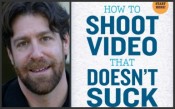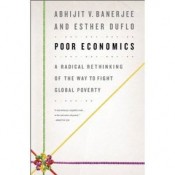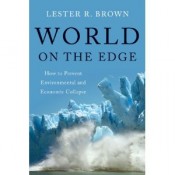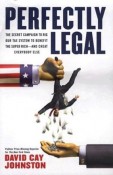Q&A: Steve Stockman, writer/director, author, HOW TO SHOOT VIDEO THAT DOESN’T SUCK
Written on January 4th, 2012 |
Aired 01/01/12
I’ll be joined by writer-director STEVE STOCKMAN whose new book HOW TO SHOOT VIDEO THAT DOESN’T SUCK has a great deal of smart things to say – not just about shooting videos of your kids’ parties or your company’s new products, but also about the essential role of story in the movies you see in theatres. Stick around. I believe you’ll learn something no matter who you are.
Economic Armageddon: Gretchen Morgensen on How Wall Street Broke the Economy
Written on July 26th, 2011NYT business reporter Gretchen Morgensen discusses her new book and the corruption of the mortgage lending industry.
July 26, 2011 | Gretchen Morgensen was awarded the Pulitzer Prize in 2002 for her “trenchant and incisive” coverage of Wall Street and has been on that beat ever since. Her new book, Reckless Endangerment: How Outsized Ambition, Greed, and Corruption Led to Economic Armageddon (written with Joshua Rosner), lays out the toxic interplay between Washington, Wall Street and corrupt mortgage lenders that led to the meltdown. It examines how the watchdogs who were supposed to protect us from financial harm were actually complicit in creating the crisis.
Gretchen Morgenson is a business reporter and columnist at the New York Times, where she also serves as assistant business and financial editor. Prior to joining the Times in 1998, she worked as a broker at Dean Witter in the 1980s, and as a reporter at Forbes, Worth, and Money magazines.
Continue reading “Economic Armageddon: Gretchen Morgensen on How Wall Street Broke the Economy”
Q&A: ESTHER DUFLO, Professor of Economics at MIT
Written on April 28th, 2011 |
Aired 04/24/11
ESTHER DUFLO, a Professor of Economics at MIT, has received numerous honors including a John Bates Clark Medal for the best American economist under 40 in 2010, a MacArthur "genius" Fellowship in 2009. She was recognized as one of the best eight young economists by the Economist Magazine, one of the 100 most influential thinkers by Foreign Policy, and one of the "forty under forty" most influential business leaders under forty by Fortune magazine in 2010.
Together with Abhijit Banerjee and Sendhil Mullainathan of Harvard University, she founded the Abdul Latif Jameel Poverty Action Lab in 2003, and authored with Banerjee, the new book, POOR ECONOMICS: A Radical Rethinking of the Way to Fight Global Poverty
Q&A: LESTER BROWN, Worldwatch Institute
Written on April 14th, 2011 |
Aired 04/10/11
LESTER BROWN has been described by the Washington Post as "one of the world's most influential thinkers." After working with the Department of Agriculture in international agricultural development, Brown helped establish the Overseas Development Council, then founded the Worldwatch Institute, which plays an important role in the public's understanding of trends in our global environment with its annual State of the World report and Vital Signs. In 2001, he left Worldwatch, founded Earth Policy Institute, and continues his vital work. During a career that began with tomato farming, Brown has been honored with numerous prizes, including the MacArthur "Genius" Fellowship, the United Nations Environment Prize, and Japan's Blue Planet Prize, along with some 20 honorary degrees.
In his new book, WORLD ON THE EDGE: HOW TO PREVENT ENVIRONMENTAL AND ECONOMIC COLLAPSE, BROWN lays out the symptoms, the diagnosis, and the cure, what he calls "Plan B". He estimates that we could solve all the world's greatest problems for $200B a year - less than a third the US defense budget - but it will take an all-out response at wartime speed proportionate to the magnitude of the threats facing civilization.
Q&A: DAVID CAY JOHNSTON Pulitzer Prize Winning Journalist, Author
Written on April 5th, 2011 |
Aired 04/03/11
Today one of our two major political parties - nationally and in state capitols -- is unwilling to consider raising taxes no matter what the circumstances. Though most of Washington's officials and media are hysterical about the deficit, and willing to hurt anyone in an effort to reduce it, both parties voted in December to extend tax breaks for the wealthiest Americans for two more years.
I last interviewed today's guest, Pulitzer Prize winning tax writer, DAVID CAY JOHNSTON in January 2009 on the day of Barack Obama's inauguration, We talked then about how we could make the most of the opportunity presented by the financial catastrophe. Did the bailouts make sense? and What could we do that would be smarter, more efficient, more effective - that might work?
DAVID CAY JOHNSTON worked as an investigative reporter for several newspapers. He was with the Los Angeles Times from 1976 to 1988, and at the New York Times from 1995-2008 where he won a Pulitzer Prize for his innovative coverage of our tax system He now teaches the tax, property and regulatory law of the ancient world at Syracuse University College of Law and Whitman School of Management and writes a column at tax.com. He is the author of two bestsellers, Perfectly Legal and Free Lunch. His next book, The Fine Print, will be published in 2011.
